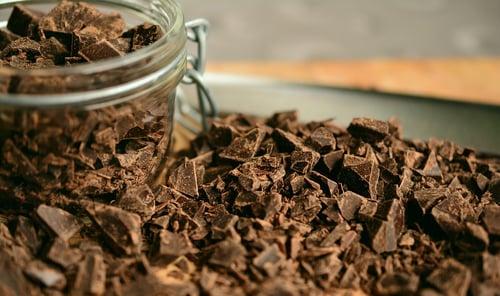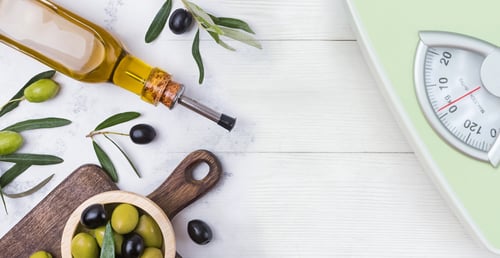Research shows that olive oil is a crucial part of the Mediterranean diet for maximum protection against disease, and this includes for protection against breast cancer.
By Dr Richard Hoffman - Associate nutrition lecturer at the University of Hertfordshire, UK
An intriguing observation about the Mediterranean diet is how it seems to protect health in Mediterranean countries more than it does in other parts of the world. Olive oil may play a big part in this, since Mediterraneans are more likely to use olive oil as part of their Mediterranean diet.
Breast cancer is one disease where this may be important. It's been found that eating a Mediterranean diet protects women in Spain and Italy against breast cancer far more than it does women in the US and several Northern European countries (namely, the UK, Sweden and the Netherlands). In Spain and Italy, olive oil is usually the main oil used in households, but this is far less likely to be the case for households in the US and Northern Europe. The Spanish study was in fact part of the large randomised control trial on the Mediterranean diet called the Predimed study, and the women were given free extra virgin olive oil. They had a remarkable 68 % lower risk of breast cancer than women in the study who had been advised to eat a low fat diet.
Eating a Mediterranean diet supplemented with extra virgin olive oil seems to be best for overall protection against breast cancer. There's some evidence that even without extra virgin olive oil as the main fat, a Mediterranean diet gives some protection against a form of breast cancer called estrogen receptor negative breast cancer. But to get the full benefits and reduce the risk of estrogen receptor positive breast cancer as well, it seems best to include extra virgin olive oil as part of your Mediterranean diet.
The superiority of extra virgin olive oil over ordinary olive oil was confirmed in a new study. This study found that women who always used at least two tablespoons per day of virgin olive oil for seasoning, cooking and frying had a 28% lower risk of breast cancer than women who didn't always follow this practice. Substances present at far higher levels in virgin olive oil than in ordinary olive oil - such as antioxidant polyphenols and lignans that block the action of estrogen - may be helping protect against breast cancer.
The benefits of extra virgin olive oil were endorsed a few years ago by a panel of experts who declared that extra virgin olive oil is probably instrumental in reducing breast cancer risk - with the important proviso that it should form part of a Mediterranean diet. These experts also recommended consuming at least two tablespoons a day, since consuming less was found to be less effective.
In conclusion, research indicates that when it comes to the health benefits of the Mediterranean diet, particularly as to breast cancer protection, the use of olive oil, especially extra virgin olive oil with its high content of olive polyphenols and lignans, is more effective than other oils that might be used in substitution. It's a good idea as well to try to eat some of the extra virgin olive oil raw in addition to cooking, to preserve all the goodness. There are many olive oil-based Mediterranean dips and salad dressings that make this easy to achieve, as well as the fact that good quality extra virgin olive oil makes an excellent condiment and sauce all by itself.
Dr Richard Hoffman Registered Nutritionist, PhD, FRSA is an Associate nutrition lecturer at the University of Hertfordshire, UK, and has run short courses on the Mediterranean diet for dietitians. He is the author of two academic books on the Mediterranean diet - The Mediterranean Diet: Health and Science and Implementing the Mediterranean Diet: Nutrition in Practice and Public Health (due out Dec. 2022), both published by Wiley. He has also written a popular book More Healthy Years: Why a Mediterranean diet is best for you and for the planet. He serves on the editorial board of Public Health Nutrition.






 The North American Olive Oil Association is committed to supplying North American consumers with quality products in a fair and competitive environment; to fostering a clear understanding of the different grades of olive oil; and to expounding the benefits of olive oil in nutrition, health, and the culinary arts. | © North American Olive Oil Association. All Rights Reserved.
The North American Olive Oil Association is committed to supplying North American consumers with quality products in a fair and competitive environment; to fostering a clear understanding of the different grades of olive oil; and to expounding the benefits of olive oil in nutrition, health, and the culinary arts. | © North American Olive Oil Association. All Rights Reserved.